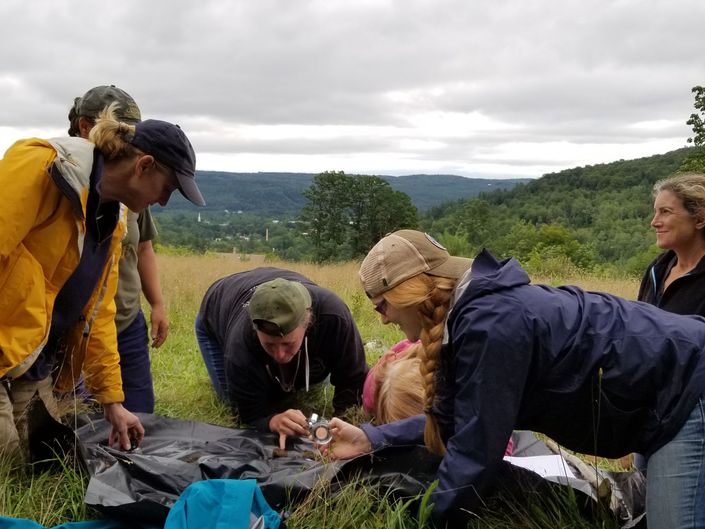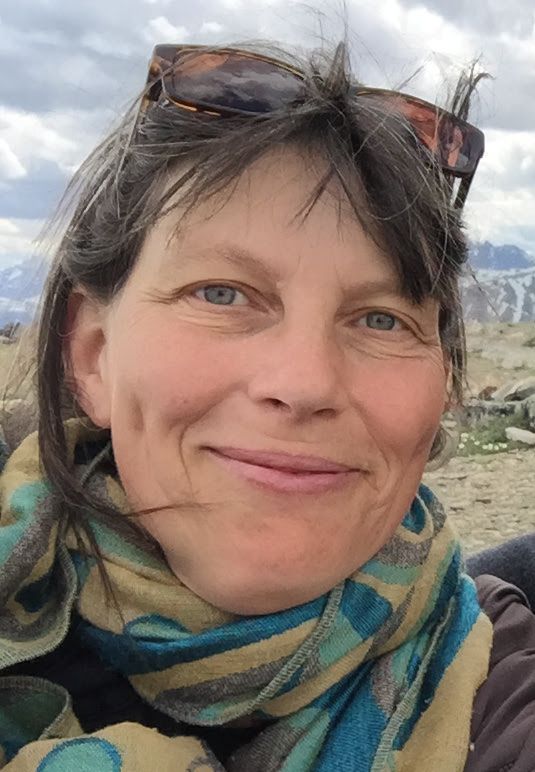
Learning with the Land: Observation, Monitoring, and Meaning
3 month deeply participatory online course with Did Pershouse and Dr. Katie Ross
Enroll in Course
From our senses, to shovels, to satellites, a multitude of methods exist to monitor and track changes in the land, whether on a farm or across an entire region. Some of these methods are relatively easy and low cost. Others are quite in-depth and very expensive. But so far, a holistic approach to understanding the systemic impact of land management decisions on living systems is elusive.
How do we know if our projects are impacting rainfall, regional temperatures, small and large water cycles, soil structure and function, and health and resilience of human and natural communities?
Over the coming three months, we’re offering a group inquiry into this topic.
This course is not just a tour through various methods, but an exploration of different paradigms behind, and worldviews surrounding, ways of knowing, and related assumptions about how we observe, why we observe, and what we observe.
We’ll explore various paradigms, such as:
- simple, hands on in-field observation and measurements
- precise scientific data collection
- satellite measurements and mapping
- predictive models for particular outcomes and markets (calculators for carbon sequestration, etc.)
- Indigenous science and ways of knowing.
- training the senses
- and holistic, direct knowing from many traditions.
Many of us are craving more guidance on how to know whether our regeneration efforts are having local and systemic impacts–on soils, water cycles, climate and biodiversity–and if so, what sort of impacts are we creating? Models can make predictions, but they won’t tell us the reality of our actual impacts.
Monitoring practices and apps serve various purposes, and yet they often are presented as if they were the be-all end-all one-stop solution.
Are you monitoring to:
- expand the way you perceive yourself and your relationship with the land?
- improve management decisions?
- get carbon or biodiversity credits?
- demonstrate the effects of your actions to show other land managers and policy makers what's possible?
- write a peer reviewed academic paper?
- share with customers, or others in your community to demonstrate the benefits of restoring natural relationships and healthy landscapes?
Your Instructor

Didi Pershouse is well known as an innovative international educator both in-person and online. She is the founder of the Land and Leadership Initiative. Her facilitator's guide Understanding Soil Health and Watershed Function is used in over 90 countries.
She became deeply involved in the intersection of food systems and health systems while providing rural health care for two decades at The Center for Sustainable Medicine, and wrote The Ecology of Care: Medicine, Agriculture, Money, and the Quiet Power of Human and Microbial Communities.
She has written a field training manual for the UN-FAO Farmer Field School Program and the Andhra Pradesh Community Managed Natural Farming Initiative in India, involving over 1,000,000 smallholder farmers. She was a contributing author to The Climate Emergency: How Africa Can Survive and Thrive; Climate Change and Creation Care; and Health in the Anthropocene. She was one of five speakers at the United Nations-FAO World Soil Day in 2017.
She serves on the Planning Commission for her town, is a board supervisor for the White River Natural Resources Conservation District, and is on the board of directors of Regenerate Earth, Soil Carbon Coalition and the Vermont Healthy Soils Coalition. While serving on the state appointed Payment for Ecosystem Services and Soil Health Working Group, she helped to reorient the program back to its public roots. She led a successful effort to conserve the Zebedee Headwaters Wetland while serving as a Vermont Conservation Commissioner.
She is on the Vision Council of the Global Earth Repair Convergence, and a member of the Ecosystem Restoration Alliance. She is a lineage member of the Change Agent Development Community (stewarded by Carol Sanford), and is seeding new communities of practice in a Wisdom tradition that uses living systems thinking.
